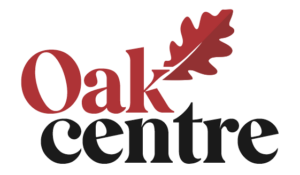The Day Amina Bako Made History
It began, quite fittingly, with a ruckus over tea.
The HR officer at Halal & Carter Consulting had just taken her first sip of steaming lemongrass when the announcement came through. A junior associate burst into the staff lounge, waving a printed email like a winning lottery ticket.
“Names are out!” he shouted, breathless. “The new partners! They’ve released the list!”
The entire lounge froze. Teacups paused mid-air. Conversations hung in suspension. A few phones slid from desks. Then came the flood of questions.
“Who made it?” someone whispered urgently. “Did Wale finally crack it?”
“No,” said another, scanning the sheet. “Wait… wait… Amina?”
There was a beat of stunned silence. Someone blinked. Another chuckled in disbelief.
“Amina Bako?” a voice said slowly, stretching out the syllables like a plot twist in a bad film. “From… Borno?”
The intern holding the paper gave a small nod, still trying to process what she had just read. “She’s on the list. Partner, Assurance and Sustainability Services.”
This time, the silence didn’t come gently. It slammed into the room.
Upstairs, in a quiet corner office, Amina Bako stood facing the window, blissfully unaware that her name had just become the subject of a hundred whispered conversations. Her back was straight, her dark green jacket neatly tailored, her eyes fixed on the Abuja skyline. But her fingers, resting lightly on the edge of her desk, trembled ever so slightly.
She had known this moment might come. She had even dared to hope. But imagining it and living it were not the same.
There was a knock, then the familiar creak of her office door.
Seyi, her friend from Financial Advisory, peeked in, grinning.
“Amina,” he said, his voice dancing, “you’ve just made Halal & Carter very, very nervous.”
She turned, arching a brow. “Why? Did someone finally discover that you can’t use Excel?”
He laughed. “You made partner.”
She blinked. Once. Then again. And then, with the calm of a woman who had fought her way up every rung of the ladder, she walked over to her desk, picked up her now-cold tea, took a slow sip, and muttered, “About time.”
Most people in the room didn’t know her story. Not the whole of it.
They didn’t know about the two internships she had juggled during her third year at Eastbridge Business School. They didn’t know she had taken three professional exams while caring for a sick parent. They didn’t know she had survived the exhausting years of being seen but not heard in rooms where her presence had to be constantly justified.
They didn’t know about the international degrees she had earned in cities where winter bit through skin, or the times she had stood in auditoriums presenting revenue models while someone asked if she was “the team assistant.”
Once, at a high-level strategy retreat, a senior partner had leaned in during dinner and said, “You’re too pretty to be crunching numbers. Ever thought of doing something… lighter?”
That same partner had just been quietly moved to a client relations role. Irony wears lovely heels.
At the official announcement, Amina stood at the back, letting others soak in the spotlight. When someone from the firm’s media desk asked how it felt to be the first northerner, man or woman, to make it to the partnership table, she gave a small, measured smile.
“It feels… overdue.”
There was polite laughter. But her gaze was sharp and unwavering.
“To the best of my knowledge,” she continued, “no one from the North has been able to hold space in this seat long enough. It’s a tough environment, and you get tested differently.”
The air shifted. People nodded.
Someone from Internal Audit leaned over, teasing, “Hope you’re ready. It’s hot up here.”
“I’m from Maidala,” she replied without missing a beat. “You don’t know heat.”
Amina’s journey had never been straightforward. She had worked at multiple firms, led revenue strategy reform projects for government agencies, and consulted on climate finance long before it became a buzzword. She knew policy. She knew numbers. But more than anything, she knew people.
Her role now was Partner, Assurance and Sustainability. But for her, the title wasn’t the reward. The opportunity to shape the firm’s future, to build systems that respected both climate and context, that was the prize.
“My career has always been guided by purpose,” she said in a later interview. “If I build a successful practice, fine. But I want to build people. Especially women.”
Later that week, in a quieter corner of the firm’s cafeteria, a young analyst approached her nervously.
“Ma,” she said, eyes downcast. “I’m from Jalingo. I didn’t know… someone like me… could get here.”
Amina tilted her head gently. “Do you know what grit is?”
The girl shook her head.
“It’s the thing that keeps you going when every single thing is telling you to stop. It’s when you keep showing up, even when the room doesn’t expect you to.”
The girl nodded, a slow realisation dawning.
“Good,” Amina said, smiling. “Now go back and finish that client memo. You’ve got things to build.”
And just like that, a new door opened. Not for her, but for someone else.
And that was exactly the point.
Homecoming: Amina in Maidala
The dust rose before the car even reached the bend into Maidala.
It wasn’t the fine, city dust Amina was used to brushing off her jackets after a long day in Abuja. This dust was thick. Familiar. The type that clung to eyelashes and settled into the crease of your palms. The road curved lazily into the town, framed by low mud houses and mango trees that still bore the marks of a dry season’s stubbornness.
In the back seat, Amina adjusted her headscarf. Her scarf was soft beige silk, elegant but simple. She had removed her wristwatch before arriving. There were things that made sense in the city, like timekeeping and title-bearing, but here, in Maidala, everything moved according to its own rhythm.
Children ran beside the car barefoot, pointing and laughing, their voices bouncing off the rusted zinc rooftops.
“That’s her!” one boy shouted. “That’s the woman they said entered the office of the big men!”
“Big woman now!” another chimed in.
Amina smiled as the car slowed to a crawl. At the junction near the mosque, a group of women stood under a neem tree, stirring millet porridge in massive pots. One of them squinted at the vehicle, leaned to the side, and gasped.
“Amina? Is that not Malam Bako’s daughter?”
The others turned, ululating softly as they waved with sticky hands. Amina stepped out of the car, the wind catching her scarf as she walked toward them.
Inside her family compound, the smell of groundnut stew wafted through the air. Her mother, still as graceful as ever, sat on a wooden stool in the courtyard, her eyes scanning her daughter’s face with that unique motherly mix of joy and inspection.
“You have not grown fat,” she said with mock disapproval.
Amina laughed. “Mama, I work in audit. We don’t eat money.”
Her mother chuckled, then reached for her hand. “So… they finally gave you the key.”
Amina nodded.
“You know it’s not just your victory, right?”
She nodded again, quieter this time.
The next morning, Amina was invited to speak at the local secondary school. It was a dusty building with faded blue walls and a cracked chalkboard, but the students had swept the compound three times before she arrived. The girls wore clean white hijabs and lined up in quiet rows, their eyes wide, their curiosity louder than words.
When Amina stood before them, her voice didn’t boom. It was gentle and steady, like the rhythm of rain against a tin roof.
“I grew up on this soil,” she began. “I once sat where you’re sitting. I’ve been told, just like you, that there are limits to where we can go.”
She paused and looked at their faces.
“But every time someone told me I couldn’t, I asked them one question. Who decided that?”
One of the girls raised her hand.
“Yes?”
The girl stood. “How do you know when it’s working? When all the struggle is not just for show?”
Amina smiled.
“You know it’s working,” she said, “when the next girl doesn’t have to ask permission to dream.”
That evening, as the sun began to fold into the hills beyond Maidala, Amina sat under the old baobab behind her family home. A few goats bleated nearby. Somewhere in the distance, a radio played an old highlife tune.
She closed her eyes, breathing in the scent of dry leaves and memory.
She had come back full circle. Not to stay. But to plant something.
A seed of possibility.
A reminder that big things could rise from forgotten places.
The Gathering at Lami Square
The sun had barely dipped behind the low hills of Maidala when the women began to arrive.
They came in twos and threes, some balancing babies on their backs, others with calloused hands from working farms, and a few in the crisp cotton wrappers saved for occasions that mattered. Word had spread. Amina Bako was holding a meeting. Not for men. Not for the government. For women.
The venue was Lami Square, a dusty open space behind the town hall, named after Maidala’s first female teacher, long gone but never forgotten. Someone had set up plastic chairs in uneven rows. A small loudspeaker crackled. Children circled curiously, but the women shooed them away gently. This was serious.
Amina arrived without ceremony. She wore a simple blue kaftan and flat sandals. No bodyguards. No tinted convoy. Just presence.
She stood before the women and waited until the noise died down.
“I know some of you are wondering why I called this meeting,” she began, her voice steady. “It’s not about numbers or accounts today. It’s about leadership. Real leadership.”
There was murmuring.
She continued, “For too long, we’ve been told that leadership belongs to others. That our place is to support, not to lead. But tell me, if we raise the children, feed the homes, and carry the weight of this community, are we not already leaders?”
A few women nodded. Others looked unsure.
Amina scanned the crowd, then pointed gently to a young woman seated in the second row.
“Rabi,” she said, “you run the market women’s union, don’t you?”
Rabi nodded, surprised. “Yes.”
“How many women report to you?”
“Thirty-two.”
“And you negotiate prices, solve disputes, and keep records?”
“Yes,” Rabi said, sitting straighter now.
Amina turned back to the crowd. “If Rabi can do all that, why should she not be councillor of this ward?”
Gasps. A ripple of nervous laughter.
“A councillor?” someone echoed.
“Yes,” Amina said simply. “Why not? Why must we wait for the same men, over and over again, to tell us what our problems are and what our priorities should be? We know our own stories. We know our own needs.”
One elderly woman raised her hand. “But politics is dirty. They will insult you. Shame you.”
“They already insult us when they ignore us,” Amina replied. “And they shame us when they hand us bags of rice instead of seats at the table.”
Another woman stood up, a teacher with chalk-stained fingers. “What if we don’t win?”
Amina smiled. “Even trying shakes the ground.”
Silence.
Then a soft clap. Then another. And soon the entire square filled with applause. Not loud. Not theatrical. But strong and rising.
By the time the meeting ended, five women had signed up to form a political mentorship circle. One had already decided to run for the local school board. And Rabi, the market leader, was overheard asking her cousin to lend her a clean notebook.
“For campaign ideas,” she said.
As the women left the square, the air felt different.
Something had shifted.
Amina stood a while longer beneath the fading sky. She did not need a throne or a title or a statue. This gathering of women breathing new courage was her campaign. Her revolution. Her legacy.
And as the stars blinked into the northern night, Maidala became, once again, a place where the impossible began to feel possible.





